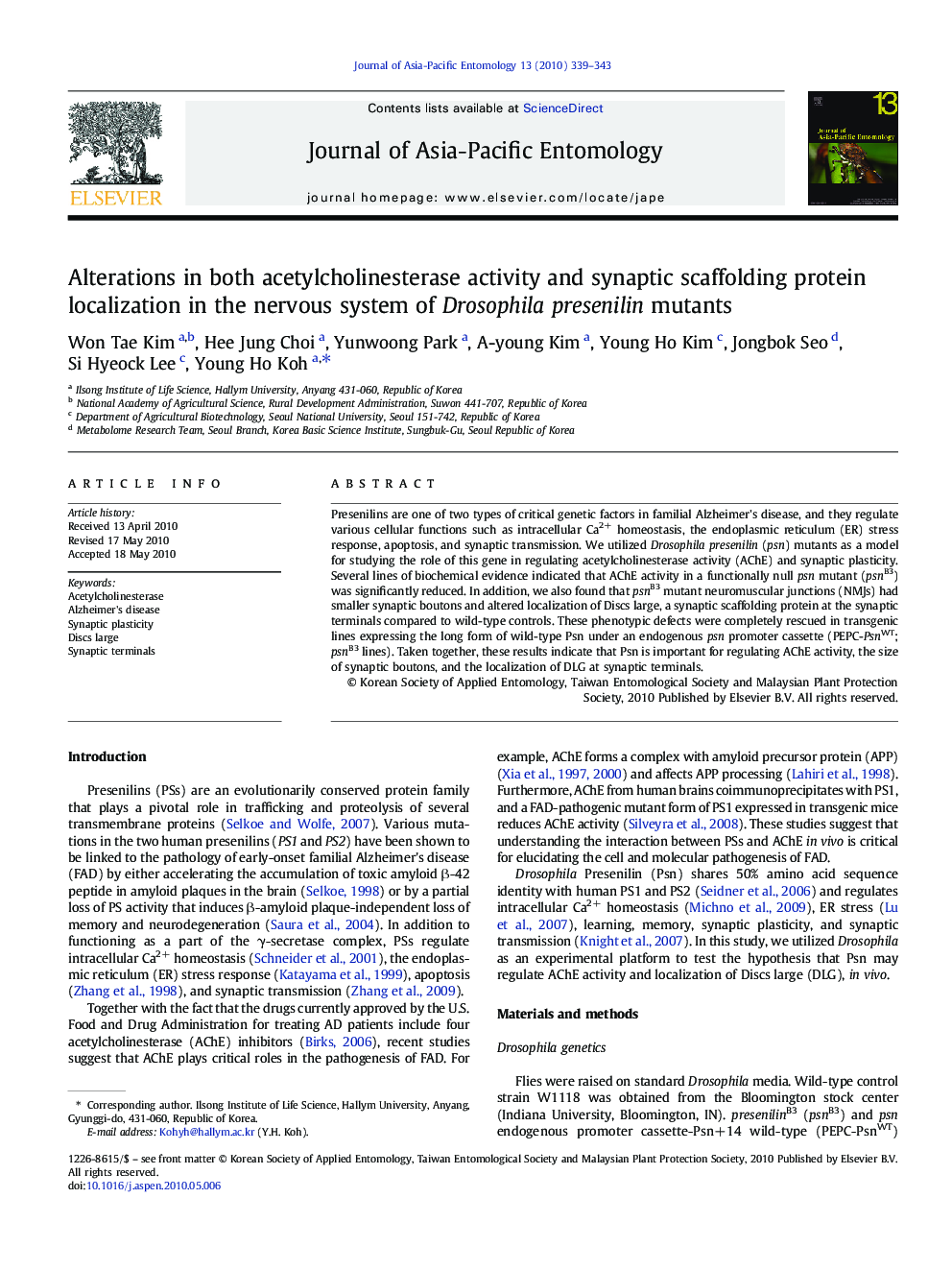| Article ID | Journal | Published Year | Pages | File Type |
|---|---|---|---|---|
| 4524828 | Journal of Asia-Pacific Entomology | 2010 | 5 Pages |
Presenilins are one of two types of critical genetic factors in familial Alzheimer's disease, and they regulate various cellular functions such as intracellular Ca2+ homeostasis, the endoplasmic reticulum (ER) stress response, apoptosis, and synaptic transmission. We utilized Drosophila presenilin (psn) mutants as a model for studying the role of this gene in regulating acetylcholinesterase activity (AChE) and synaptic plasticity. Several lines of biochemical evidence indicated that AChE activity in a functionally null psn mutant (psnB3) was significantly reduced. In addition, we also found that psnB3 mutant neuromuscular junctions (NMJs) had smaller synaptic boutons and altered localization of Discs large, a synaptic scaffolding protein at the synaptic terminals compared to wild-type controls. These phenotypic defects were completely rescued in transgenic lines expressing the long form of wild-type Psn under an endogenous psn promoter cassette (PEPC-PsnWT;psnB3 lines). Taken together, these results indicate that Psn is important for regulating AChE activity, the size of synaptic boutons, and the localization of DLG at synaptic terminals.
